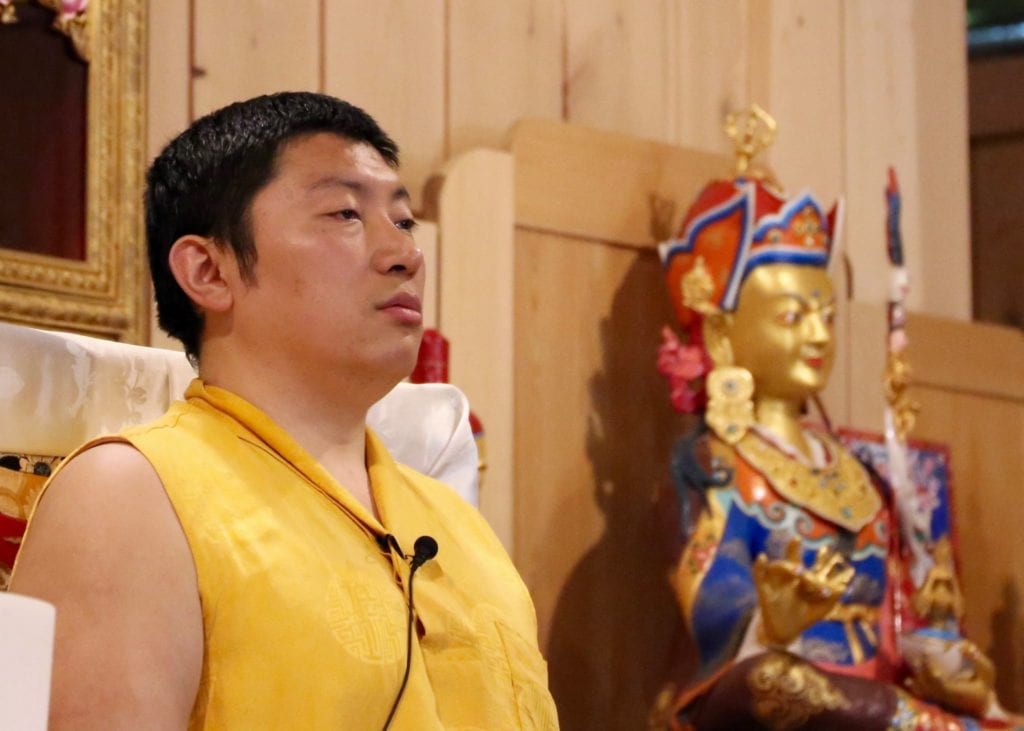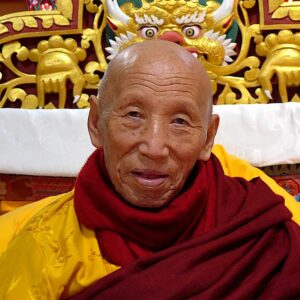Overcoming Resistance by Knowing Our Own Character
Overcoming resistance means understanding our own behavior and habits. And many of us have patterns of laziness or of rebelling against rules and regulations. So, when we are beginning a meditation practice, we can explore overcoming resistance. We observe how our own attitudes may get in the way of developing meditation experience. But as we inquire gently. we remember not to be overly rigid or extreme in our expectations. Meditation should be approached gently; we aren’t putting ourselves in jail!
Here, in this excerpt from a recent talk at Gomde New York, NY, Phakchok Rinpoche explains how he personally dealt with this issue.
Overcoming Resistance by Giving Gradual Tastes of Experience
Rinpoche discusses how his own teacher guided him skillfully by not being too rigid in response to his laziness and hard-headedness. And many of us might also immediately rebel when we are pushed too hard or encounter too many rules.
Instead of forcing him to practice for many hours, Rinpoche’s teacher asked him some specific questions. “Are you angry? Are you unhappy?” And, Rinpoche answered “Yes”. So, then his teacher suggested that he do some reflection. First, he encouraged Rinpoche to reflect, “Where are these thoughts coming from?” He sent him out to practice, saying “Go check –and then slowly do a few minutes of meditation”.
Rinpoche followed this advice. He began to meditate for slightly longer, and then longer periods. After taking this gentle entry, within a year or two, having some experience with the practice, he naturally began to expand the time. And the key to this was that it happened automatically and organically. Rinpoche didn’t feel like he was being pressured. He was overcoming resistance by not pushing himself too hard or creating too many rules in the beginning.
Overcoming Resistance and Developing Joy
When we take this approach, we become joyful about our own practice. And, we’ll gradually start adding time to our meditation sessions in a natural, more holistic way. We are overcoming resistance by destroying its cause–the underlying fear. Why do we resist so much? Because we don’t know what might happen if we apply ourselves to meditation! We’re afraid of what we don’t know and that’s very normal. But when we start small, by simply following the instruction to check ourselves–we don’t need to resist. That’s not so scary, right?
That’s why Rinpoche explains that Dharma is not just an explanation or a culture. And Dharma is not only a pith instruction transmission, Instead, meditation instruction becomes a “life-transmission”. He uses the metaphor of someone giving CPR and mouth-to-mouth resuscitation. We’re not literally performing these emergency procedures, but a meditation teacher skillfully leads us along. We develop great respect and gratitude for these teachers as we understand how they help us to overcome our own habits and issues.
Reflection Exercise
Rinpoche remarks that he expects many of us might have the same tendencies or habits that he had when he began. Spend some time reflecting on this.
Are you resistant to rules and being told how many minutes to practice?
That’s fine–it’s good to know that about yourself. Can you explore why you might be resistant? Where do those thoughts arise from? Try to do a little self-checking.
Can you recognize any fears? What happens if you sit for 5 or 10 minutes in meditation? Don’t push too much, but gently check, reflect, and meditate a bit. If you stick with this new habit, in an easy-going way, do you experience less resistance?











Responses